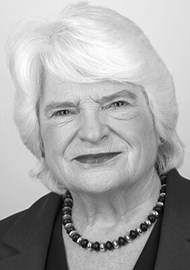On 15 December 2022, The Department of Health and Social Care published the ‘Government response to the independent inquiry report into the issues raised by former surgeon Ian Paterson: 12-month implementation progress update’. The reference documents (which apply to England) can be accessed online as follows:
- Government response:
https://www.gov.uk/government/publications/
paterson-inquiry-government-response-implementation
-update/government-response-to-the-independent
-inquiry-report-into-the-issues-raised-by-former
-surgeon-ian-paterson-12-month-implementation-progress-update - Maria Caulfield MP written ministerial statement:
https://questions-statements.parliament.uk/
written-statements/detail/2022-12-15/hcws455 - The full implementation update report:
https://www.gov.uk/government/publications/
paterson-inquiry-government-response-implementation-update
Four key themes were addressed by the Department of Health:
- Providing patient-centred information
- Making challenge heard
- Ensuring accountability
- Putting things right
It is a privilege to contribute to The PMFA Journal. I write from the unique perspective of nearly 20 years running the Independent Sector Complaints Adjudication Service (ISCAS) which parallels the Parliamentary and Health Service Ombudsman (PHSO) in the NHS. Formerly director of nursing at the London Bridge Hospital, my focus is identifying excellence in administration on behalf of the patient, informed as I am by recent experiences across the sector and the lessons learned therefrom.
The price of excellence is eternal vigilance. And what exactly does vigilance comprise? Take Paterson, for example, now serving time at His Majesty’s pleasure. An egotist, a loner and highly persuasive, he avoided effective clinical audit for a number of years and thousands of patients suffered. Challenged and ousted by the NHS without adequately warning the medical regulator, an unsuspecting independent provider gave him practising privileges in two of their hospitals without itself adequately retaining responsibility for clinical standards and audit. Patients who expressed concerns were ignored or dismissed and sadly not believed, as staff were too afraid to challenge this consultant.

The inquiry into Paterson’s practice made several recommendations. I want to highlight one of the recommendations, namely recommendation six consisting of two parts. Every patient undertaking cosmetic surgery or non-surgical treatments should be given, if needed, the right to raise a concern about their treatment and access to an independent review. No doctor or nurse should be given the freedom to practise without an independent audit of their clinical record. The first part of the recommendation is that patients in general – whether they are treated in the NHS or the independent sector – should benefit from an impartial complaints process. ISCAS and the NHS use a common Complaints Standard Framework which has four elements, namely:
- Promoting a just and learning culture
- Welcoming complaints in a positive way
- Being thorough and fair
- Giving fair and accountable responses
There is real danger stemming from not knowing what goes on behind closed doors. Remember not just Paterson but Shipman and others. Revalidation opens a crack into this hidden world; the door needs to be opened wider, and so provider companies are now required to review the clinical performance activity and to take responsibility for the safe performance of doctors or nurses operating under their roof. They must now inform patients that they have this right and ensure that they have access to a complaints process. Original treatments pushing the boundaries of ethical conduct or safety are likely in the cosmetic milieu, but the reputation of the sector depends on not crossing into the unacceptable. We can rely upon the professional regulators of the UK but nowadays patients seek cheaper treatments, and it is possible for a doctor recognised by a laxer administration to jet in, perform a treatment and jet out – all in a morning, avoiding all responsibility. How do those who wish to guard the sector’s reputation view this – and stop it?
As the Director of ISCAS I can affirm that we in ISCAS believe the dignity and safety of the patient is best protected by providing effective channels to voice a concern and have it resolved appropriately. We have found that providers who allow this gain benefit from an alternative view from the patient perspective, with insights that might not otherwise have come to light.
Every provider should be fully aware of the Care Quality Commission’s (CQC) ‘Regulation 16 – Receiving and Acting upon Complaints’. Every private patient being treated should have the right to raise a concern. The rise in the demand for cosmetic surgery in addition to the non-surgical arena of treatments must be taken seriously.
The growing number of non-surgical providers now trading should all be expected to register with a validating organisation such as the Joint Council of Cosmetic Providers (JCCP), lest this Wild West of peri-medical economic trading drags down the reputation of regulated medical activities. This is said prior to regulation being introduced, for which we have had a long wait.
In the meantime the trade association has launched its ‘refresh’ of its Medical Practitioners Assurance Framework (MPAF), designed to further improve the safety and quality of care that independent providers deliver to patients. Initially launched in October 2019, the MPAF – led by former National NHS Medical Director Sir Bruce Keogh – contains key principles to strengthen and build upon the medical governance systems already in place in the sector and sets out expected practice in a number of key areas. The CQC now uses the MPAF principles in assessing how well-led an independent service is, with the framework a requirement of the NHS’ 2022/23 Standard Contract that all independent sector providers of NHS-funded care must adhere to.
The MPAF was always designed to be a ‘live document’ and the refresh strengthens the framework to ensure it remains in-keeping with current best practice in the health system. This includes taking into account recommendations from the Bishop of Norwich’s inquiry into Ian Paterson, as well as Baroness Cumberlege’s Independent Medicines and Medical Devices Safety Review (IMMDS). Key areas strengthened in the refresh include giving more prominence to expectations around patient consent, and the need to have greater transparency around conflict of interest declarations.
New initiatives such as the Learn from Patient Safety Events (LFPSE) service are also reflected in the refreshed framework, as well as an Independent Healthcare Provider Network (IHPN) Development Plan which sets out how the network will support providers to continue to implement the MPAF. In developing the framework, IHPN was supported by a reference group consisting of representatives from the Department of Health and Social Care, CQC, the General Medical Council (GMC), NHS Resolution, Medical Royal Colleges, Federation of Independent Practitioner Organisations and the Patients Association.
ISCAS welcomes the refreshed MPAF, and will ensure that this well respected document is used by ISCAS subscribers as part of their governance framework. The ISCAS Code has also been updated to include the Complaints Standard Framework (CSF) namely 'To include promoting a just and learning culture, welcoming complaints in a positive way, being thorough and fair and giving fair and accountable responses,' the principles of which are contained within the refreshed MPAF.
Dr Sean O’Kelly, CQC’s Chief Inspector of Hospitals, said:
“Robust medical governance is central to patient safety and high-quality care. CQC very much welcomes the updates that IHPN has made to strengthen the Medical Practitioners Assurance Framework and we are pleased to have been part of the expert advisory group that helped shape its development. Where providers can demonstrate effective implementation of its principles, this is considered as evidence of good governance and informs the judgement we make about how well led services being provided by that organisation are.”
Una Lane, Director of Registration and Revalidation at the General Medical Council, said:
“Since its launch the framework has played an invaluable role helping ensure patients receive safe and good-quality care, in both the NHS and the independent sector. This refresh takes account of recent high-profile cases and will strengthen that protection. The importance of good local clinical governance cannot be overstated. This updated framework will help medical practitioners, as well as responsible officers and designated bodies, to develop and maintain effective local systems, enabling them to provide the best possible care to patients.”
Professor Neil Mortensen, President of the Royal College of Surgeons of England, said:
“The Royal College of Surgeons of England welcomes the updated Medical Practitioners Assurance Framework. There is growing demand for private services, including elective surgery. This makes it all the more urgent to ensure that high standards of care and good governance processes are in place, supporting the specific challenges faced by the sector. We have recently published guidance for surgeons working in the independent sector (https://www.rcseng.ac.uk/standards-and-research/standards-and-guidance/good-practice-guides/working-in-independent-sector/) which aims to provide advice on good practice for individual practitioners. So, we hope this will be used in conjunction with the IHPN framework. The framework addresses a number of key areas, including data sharing and whole practice appraisal across the NHS and the independent sector. Also, quality improvement, and an emphasis on the need for sufficient peer review systems that will reduce the risk of professional isolation and lone practice. We would like to see all independent hospitals, even the small number not in IHPN membership, commit to implementing the framework.”
COMMENTS ARE WELCOME









